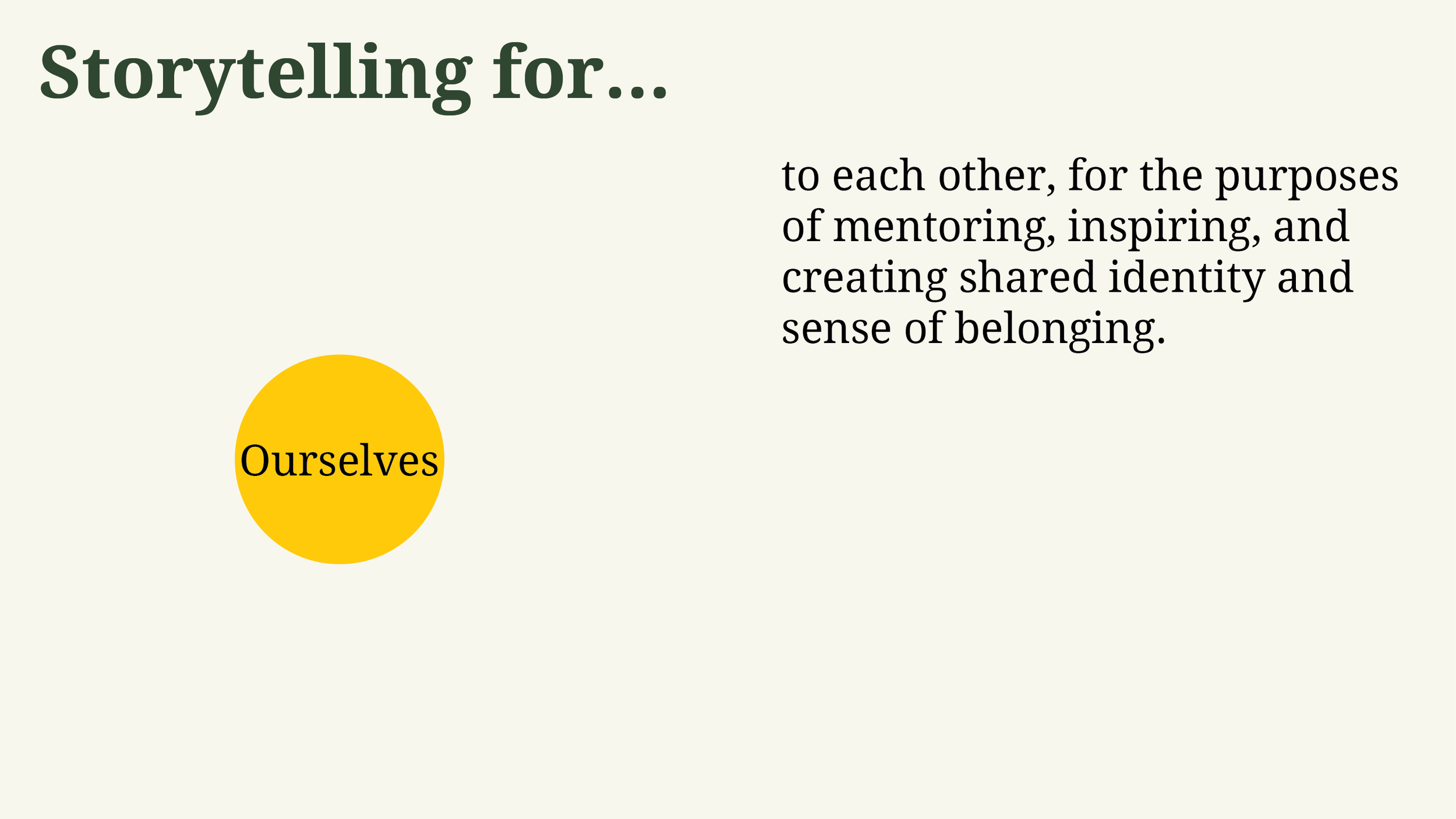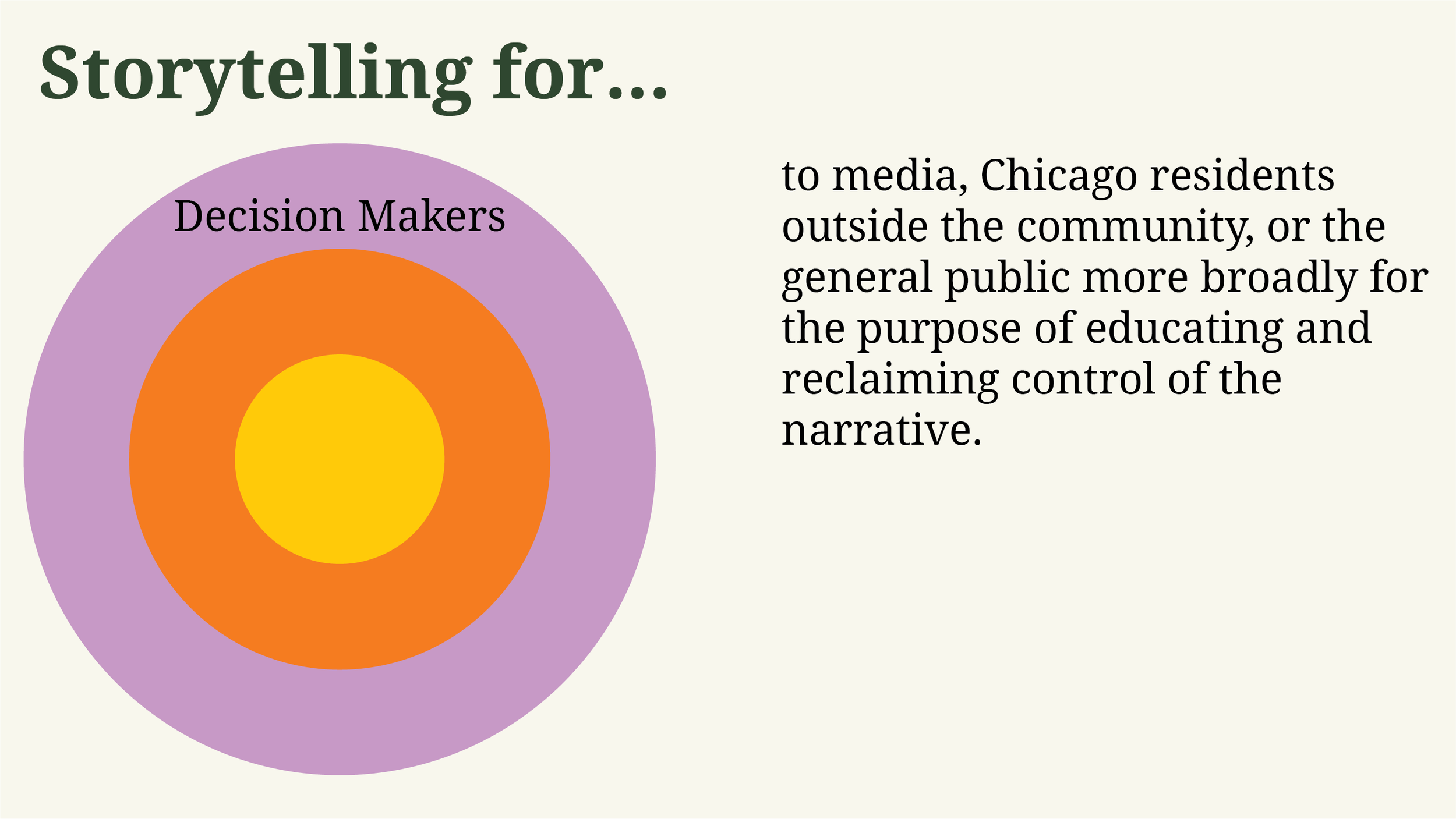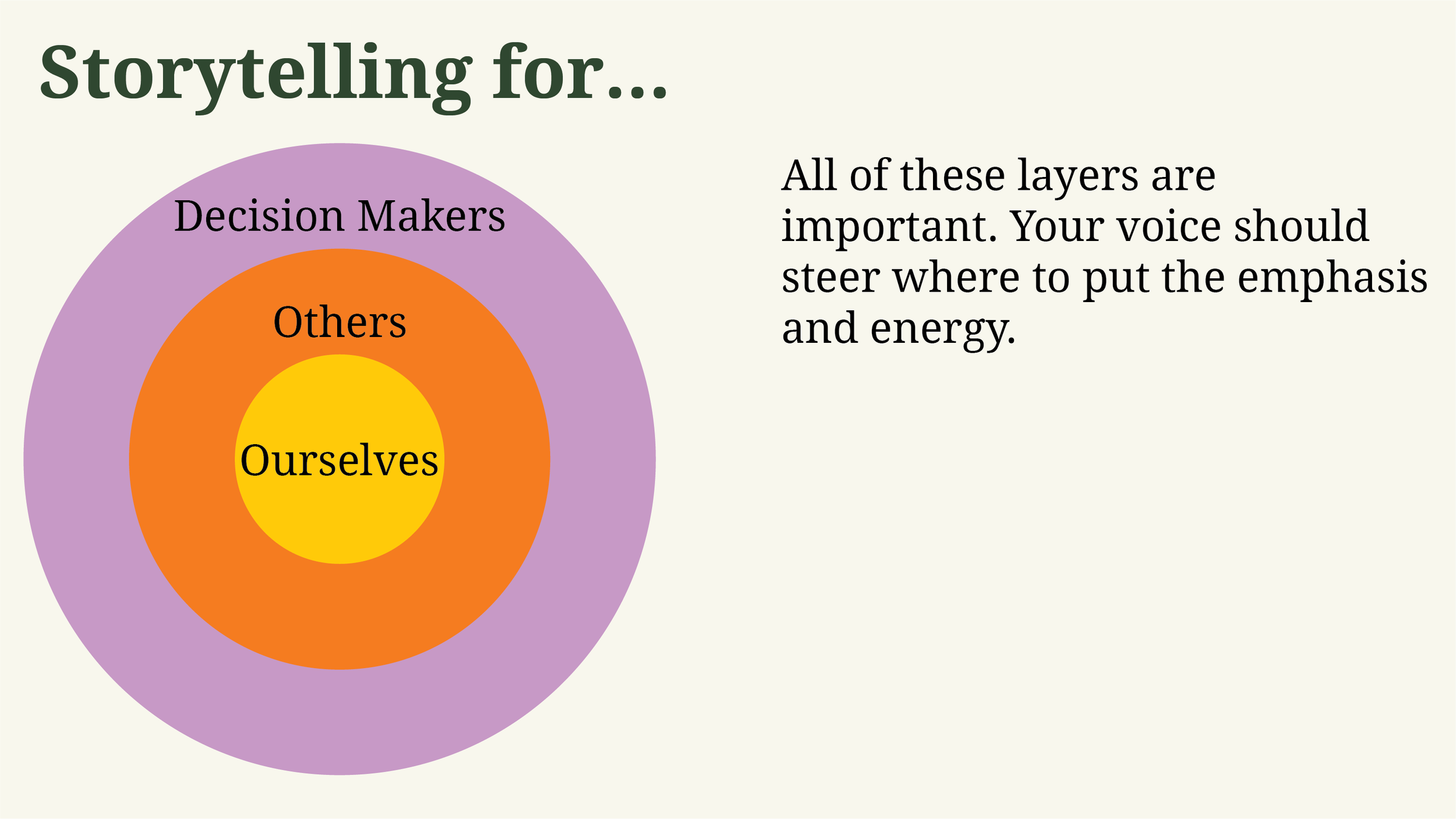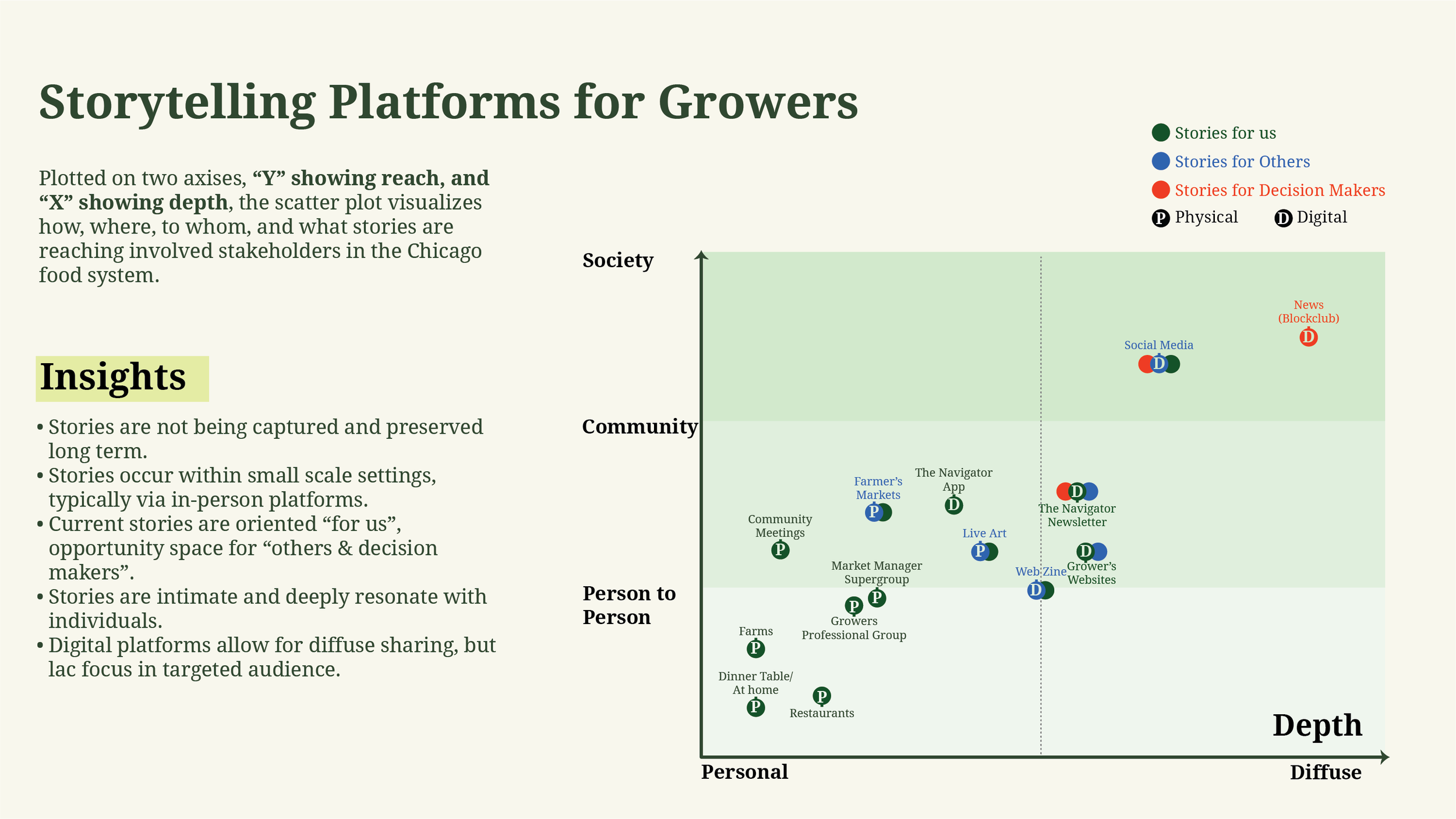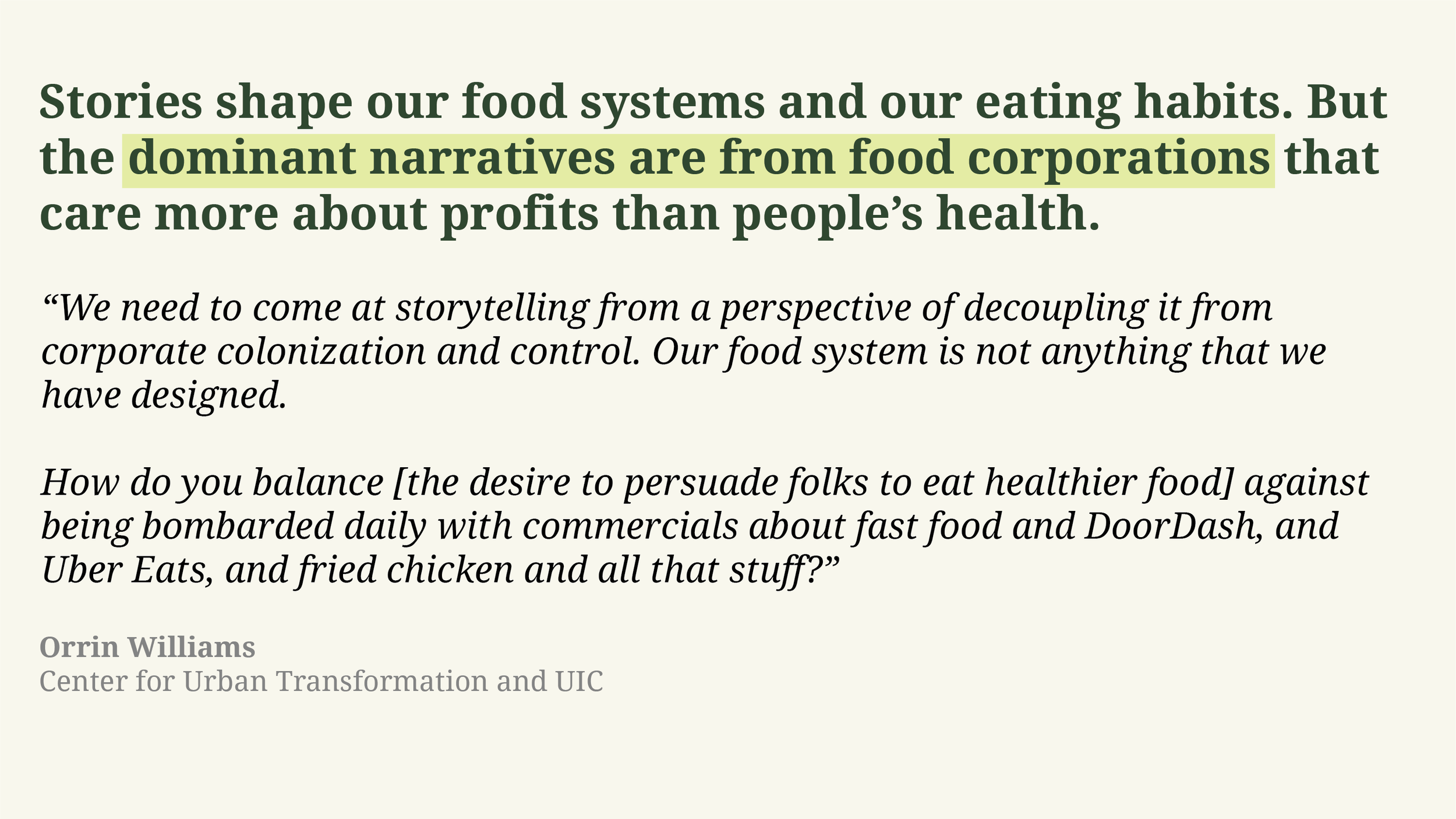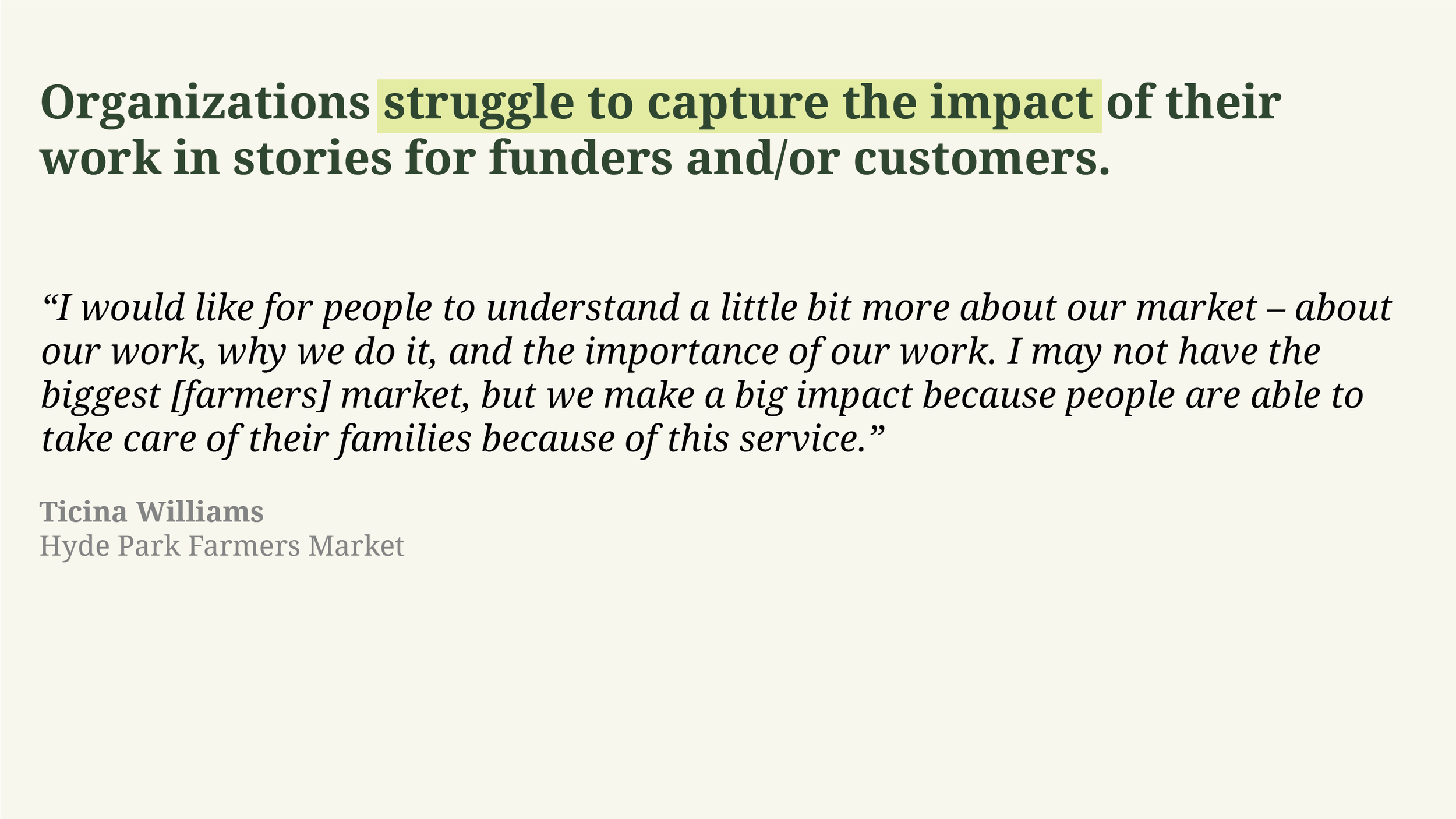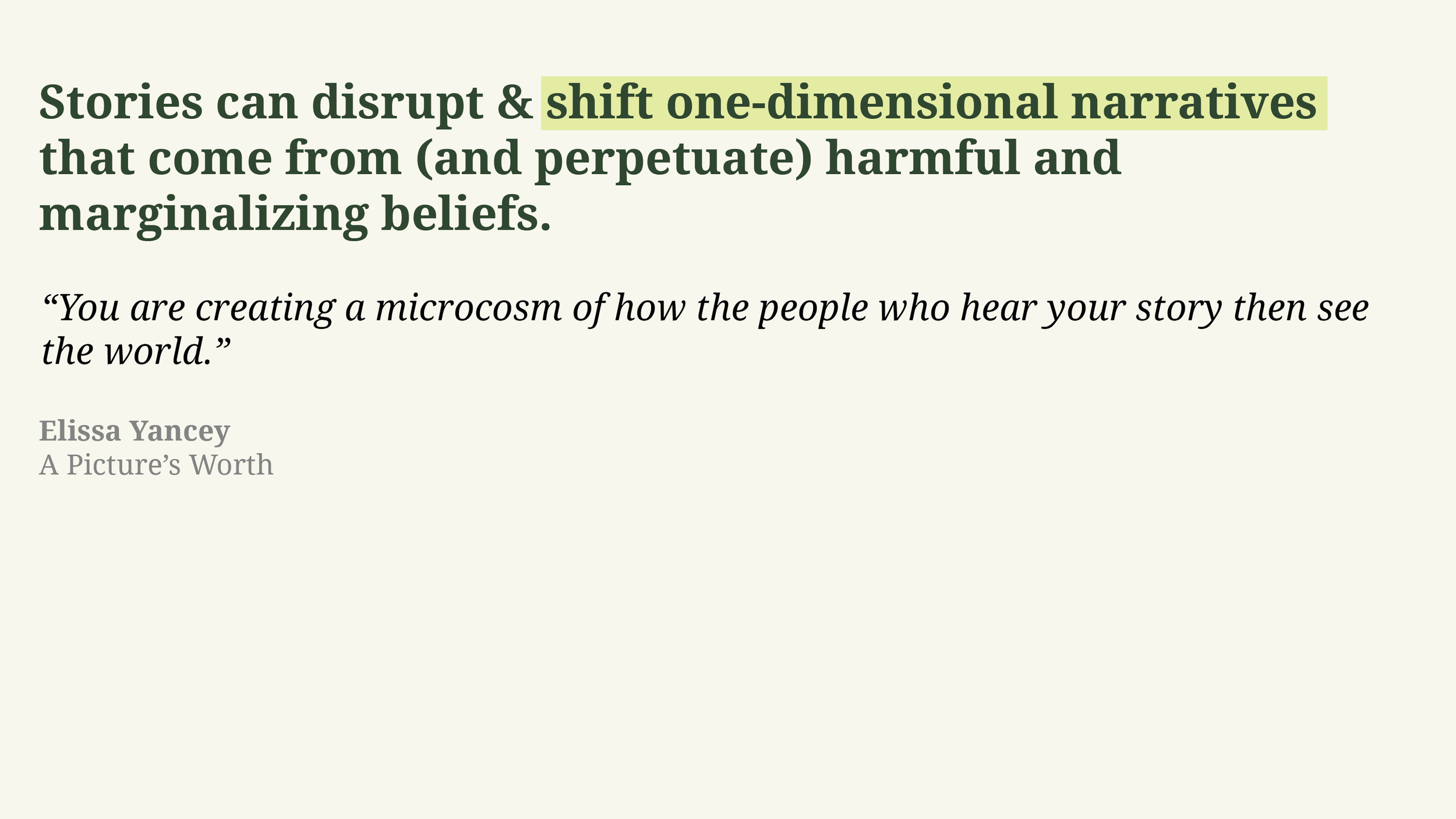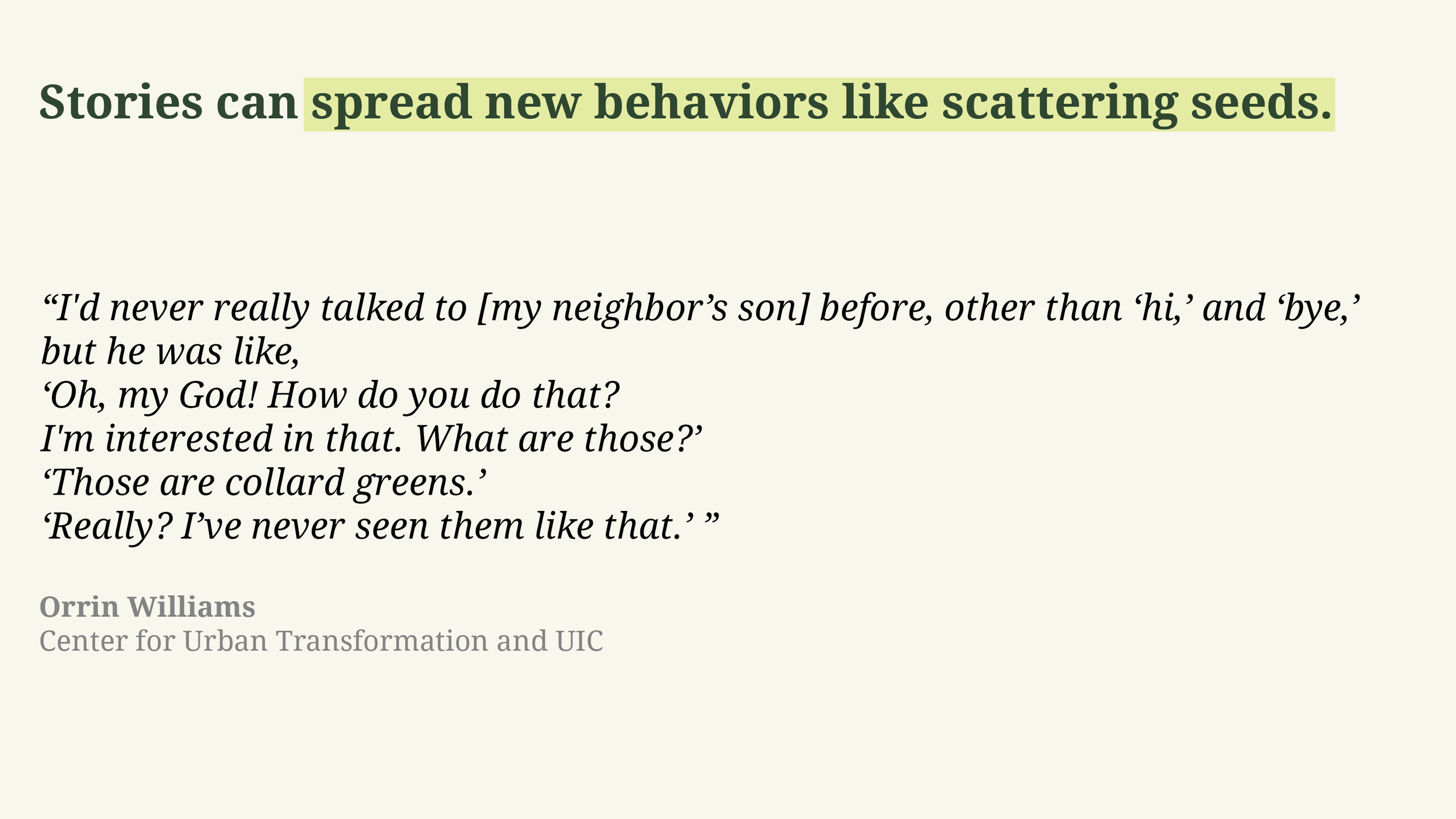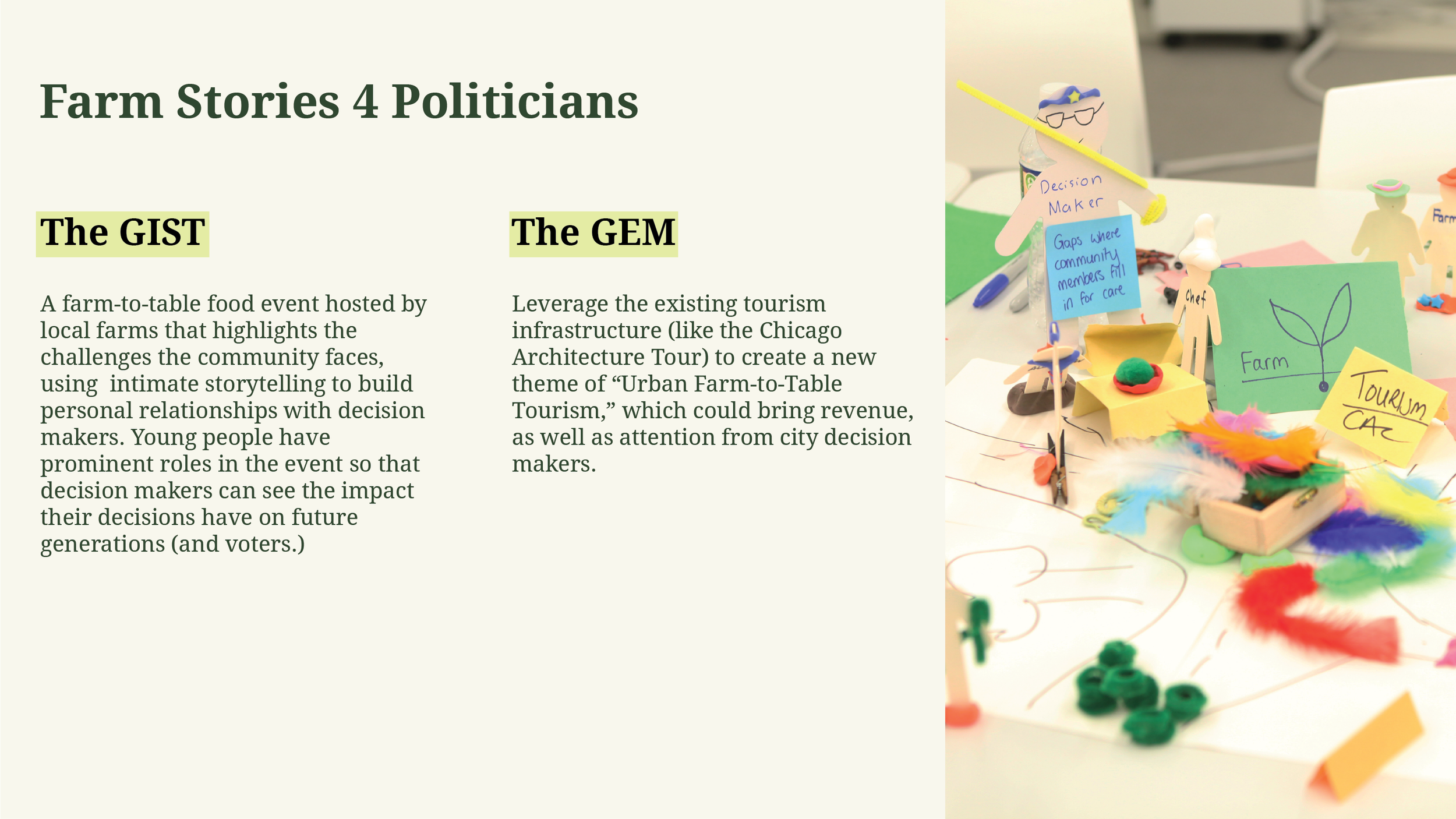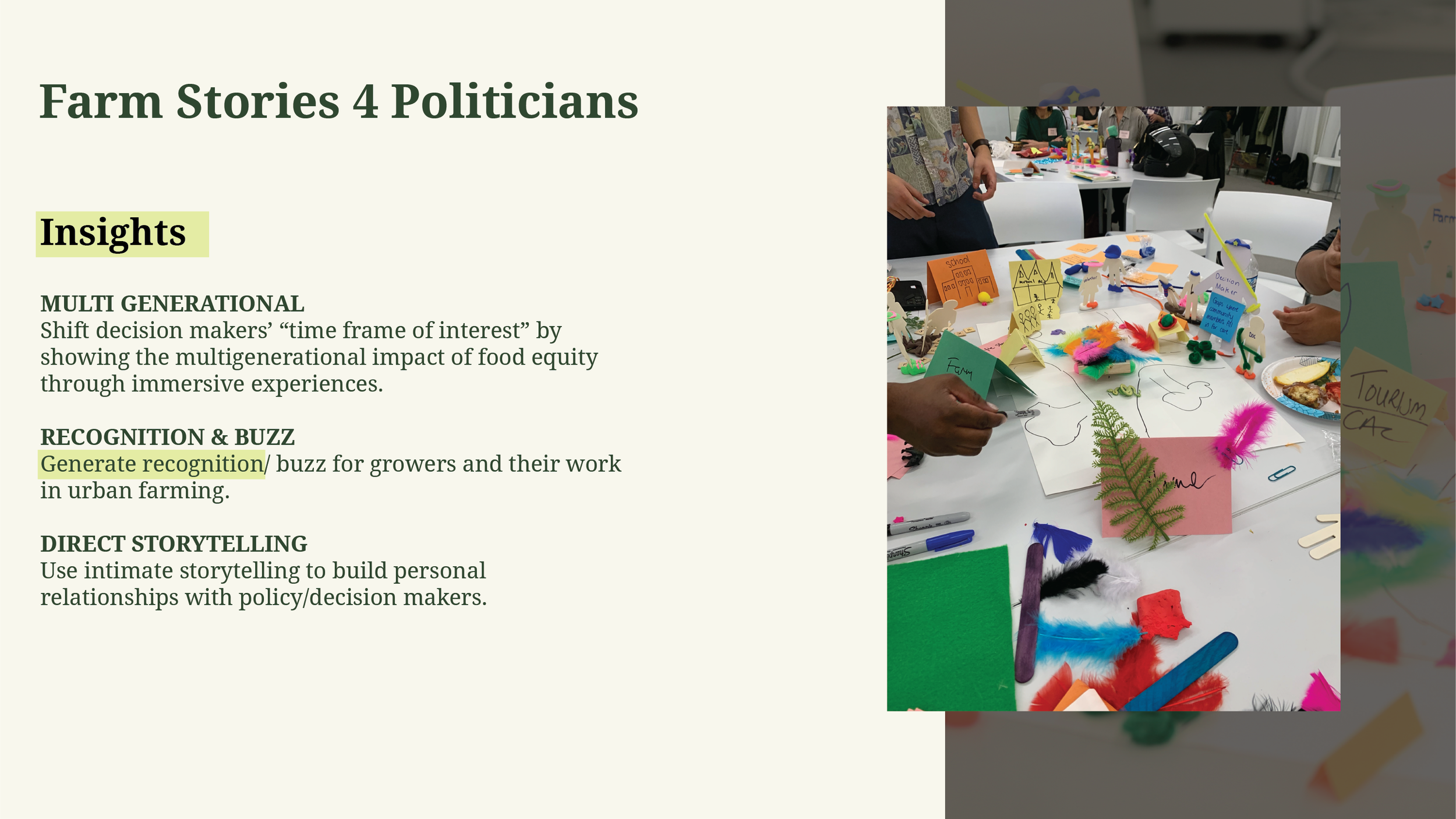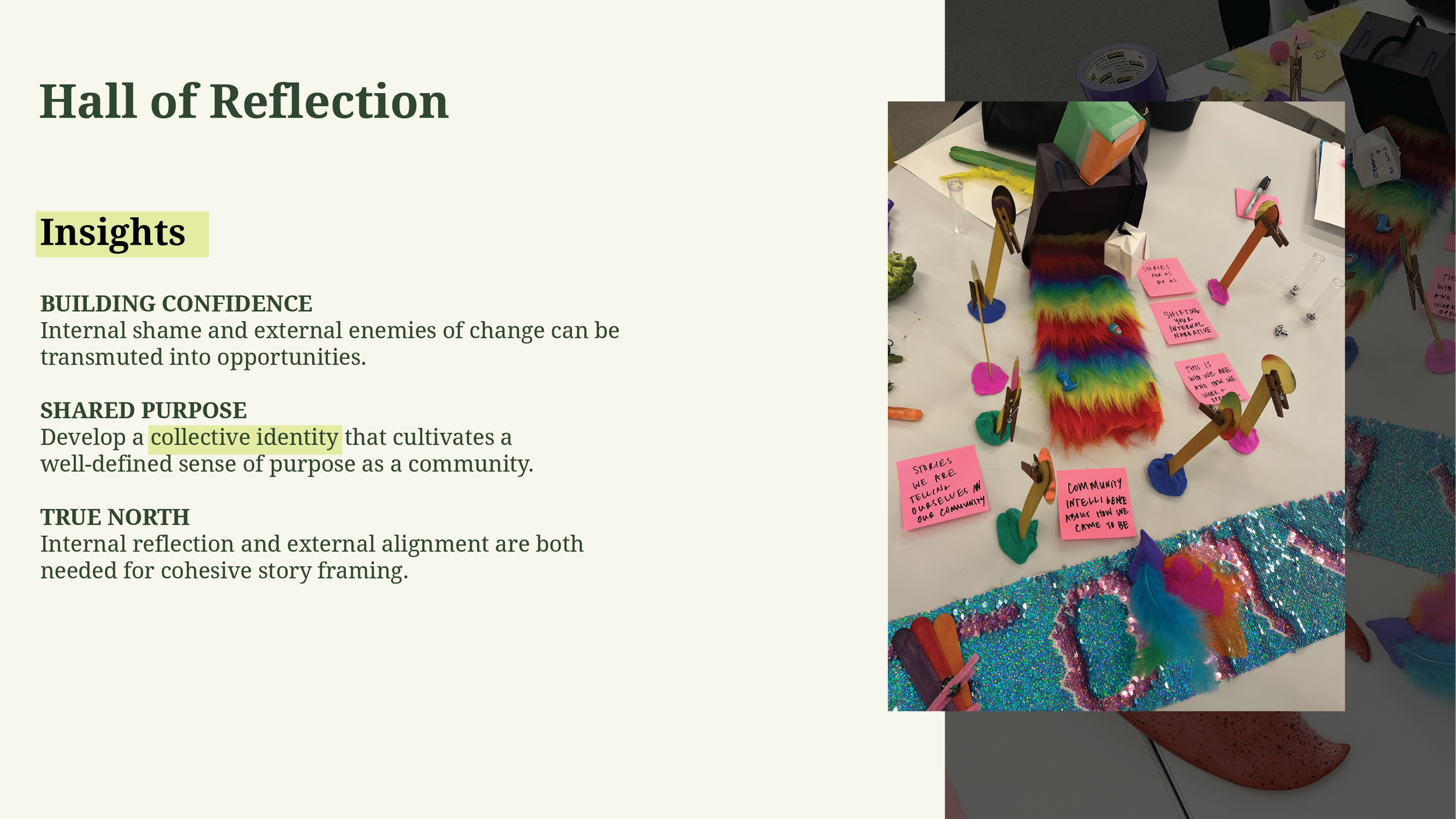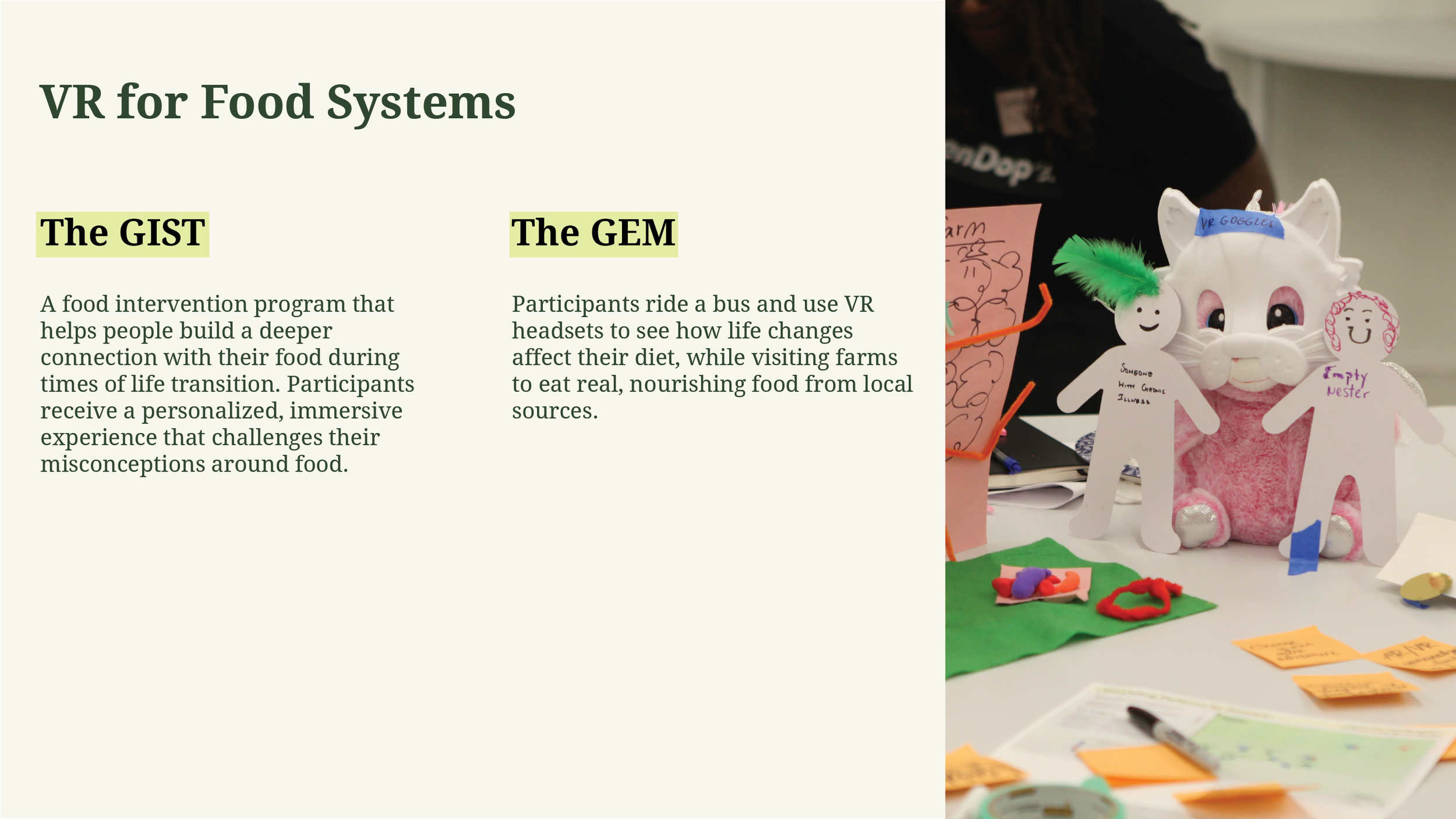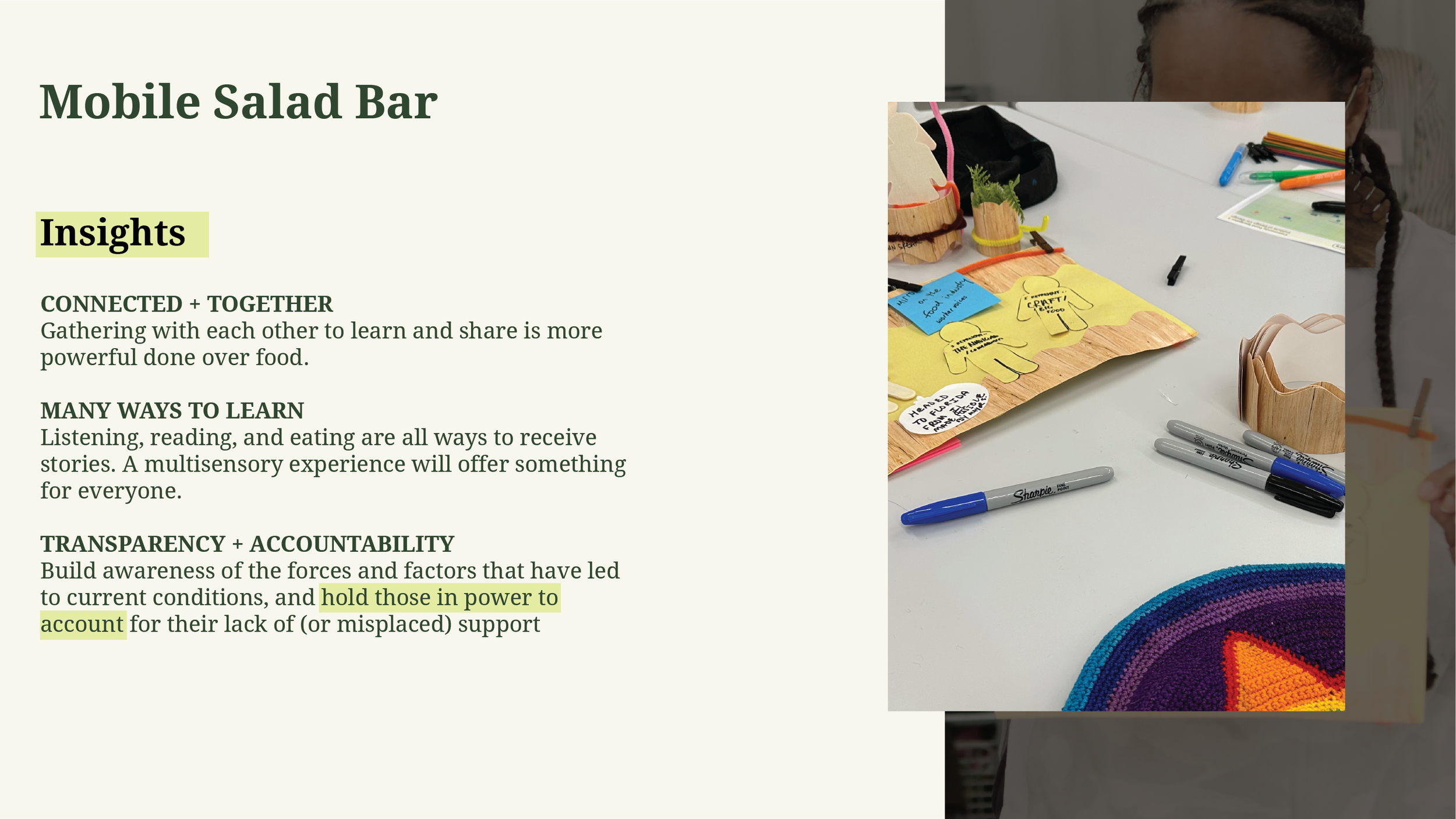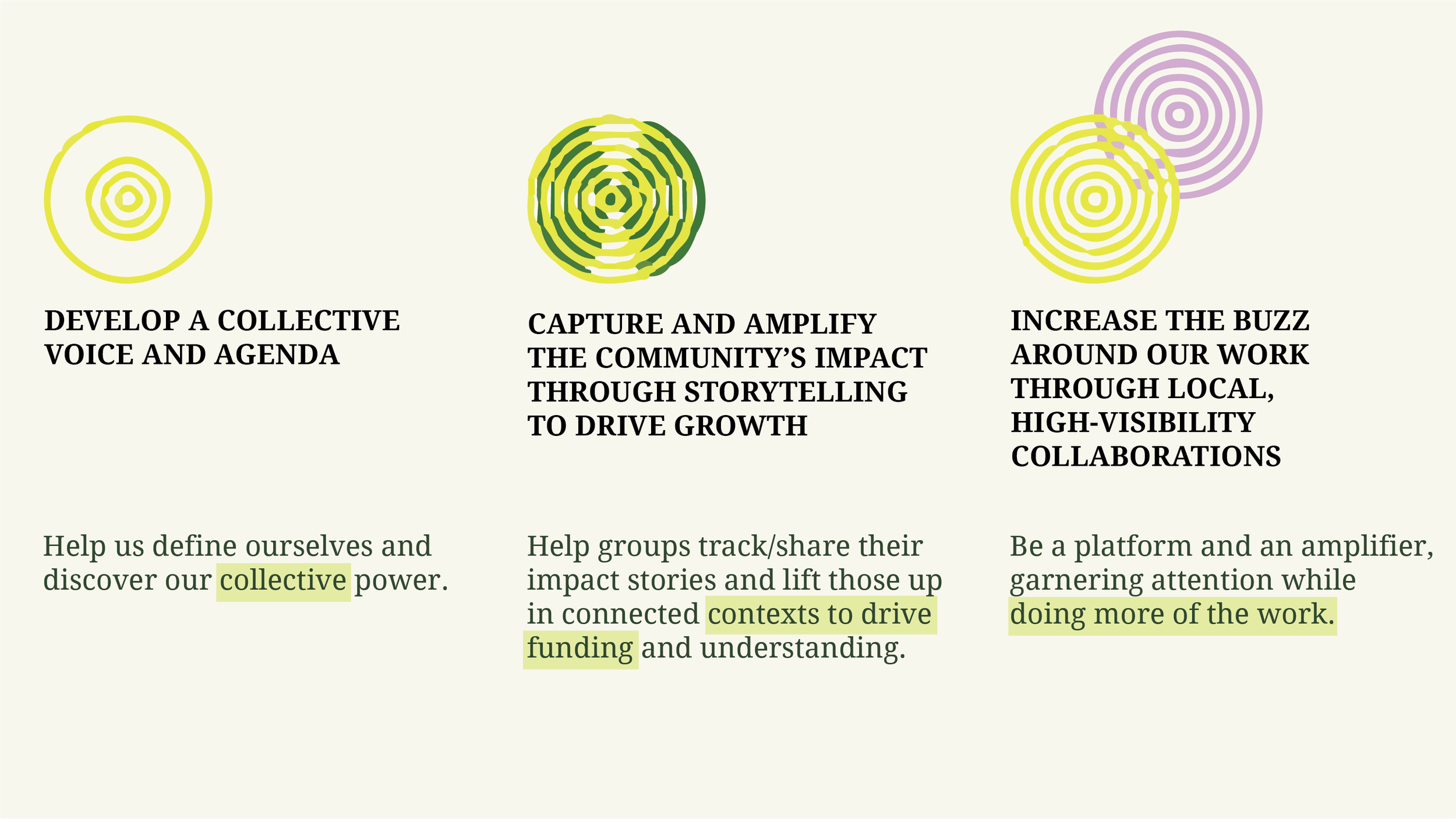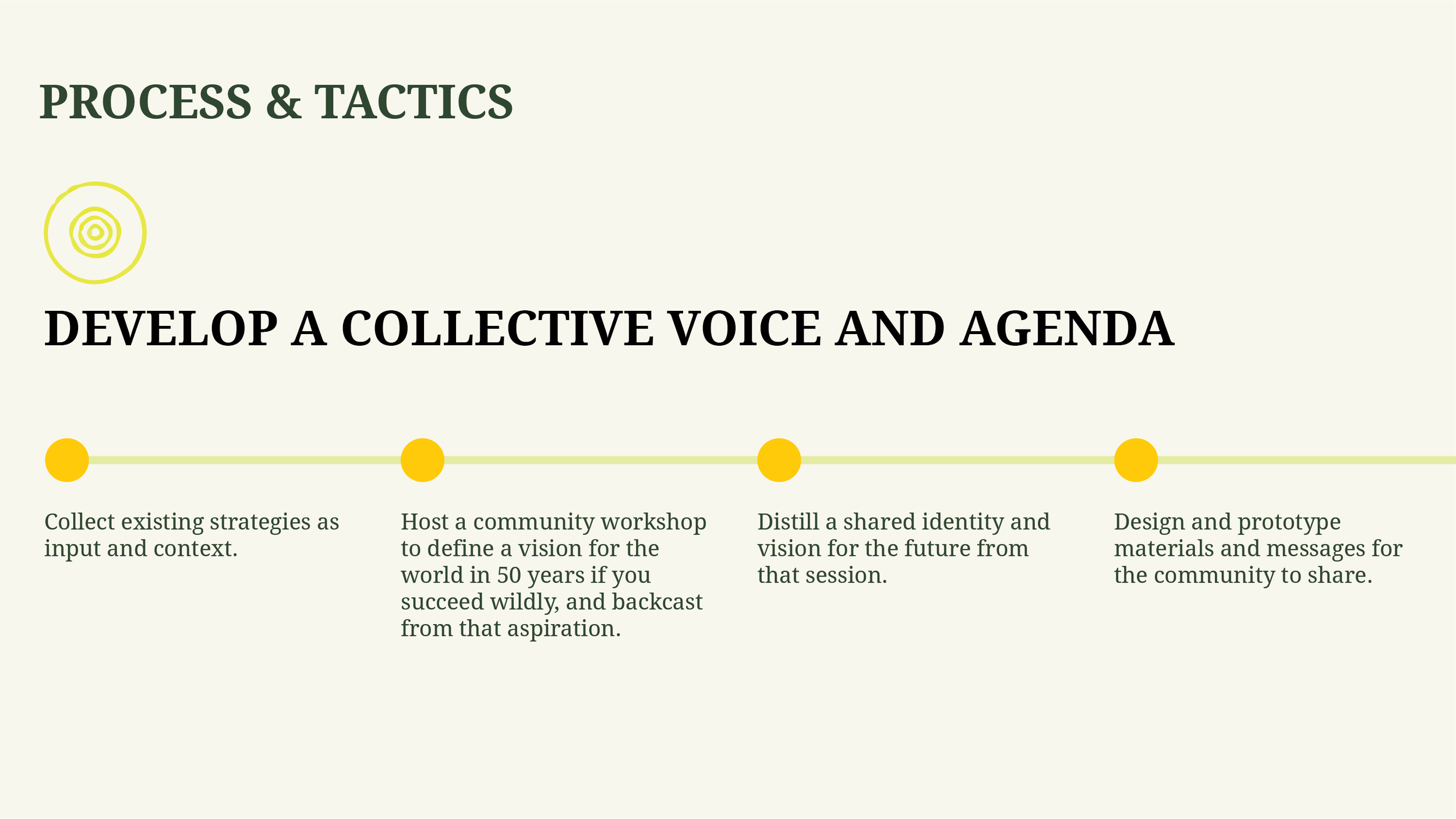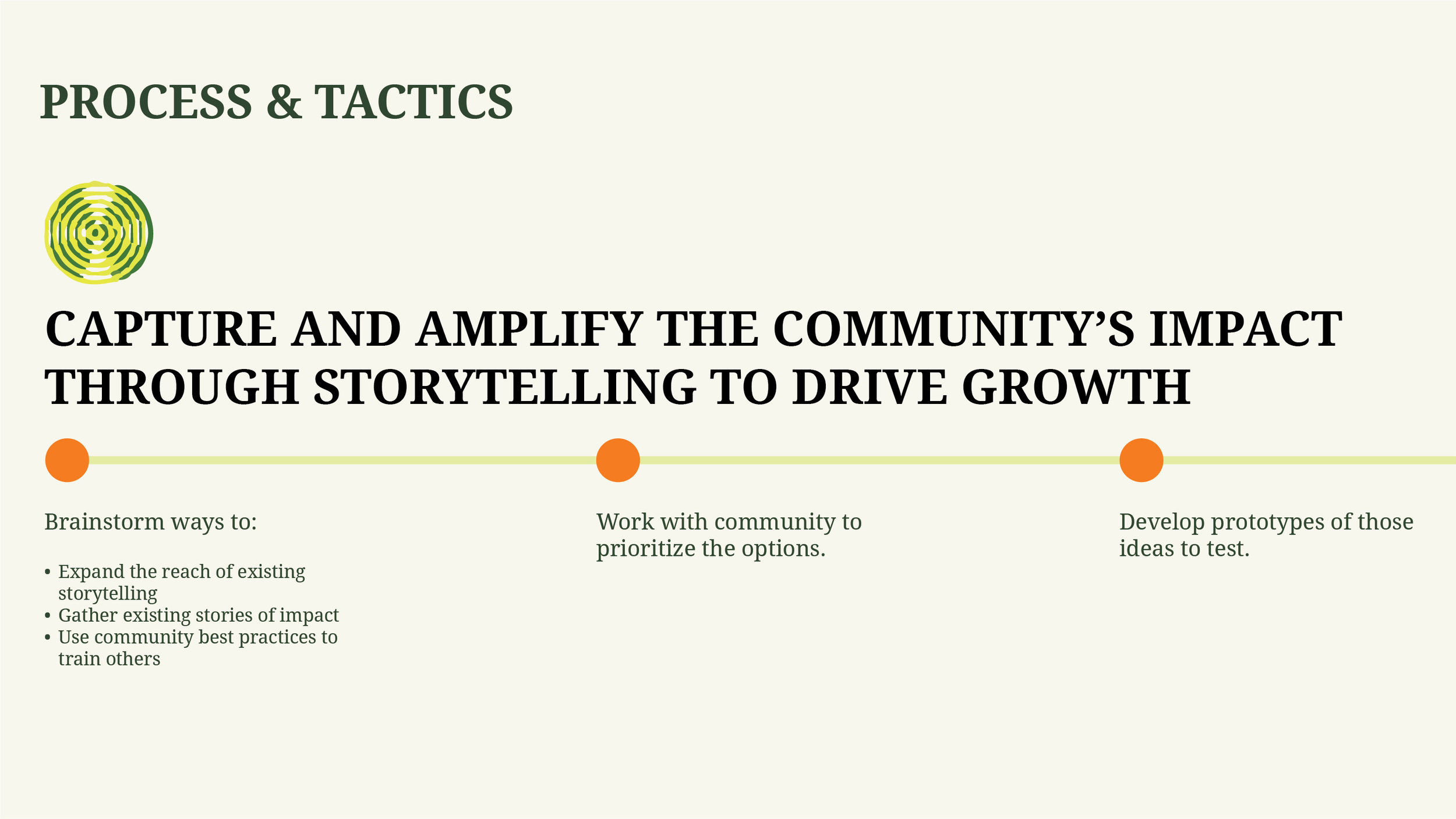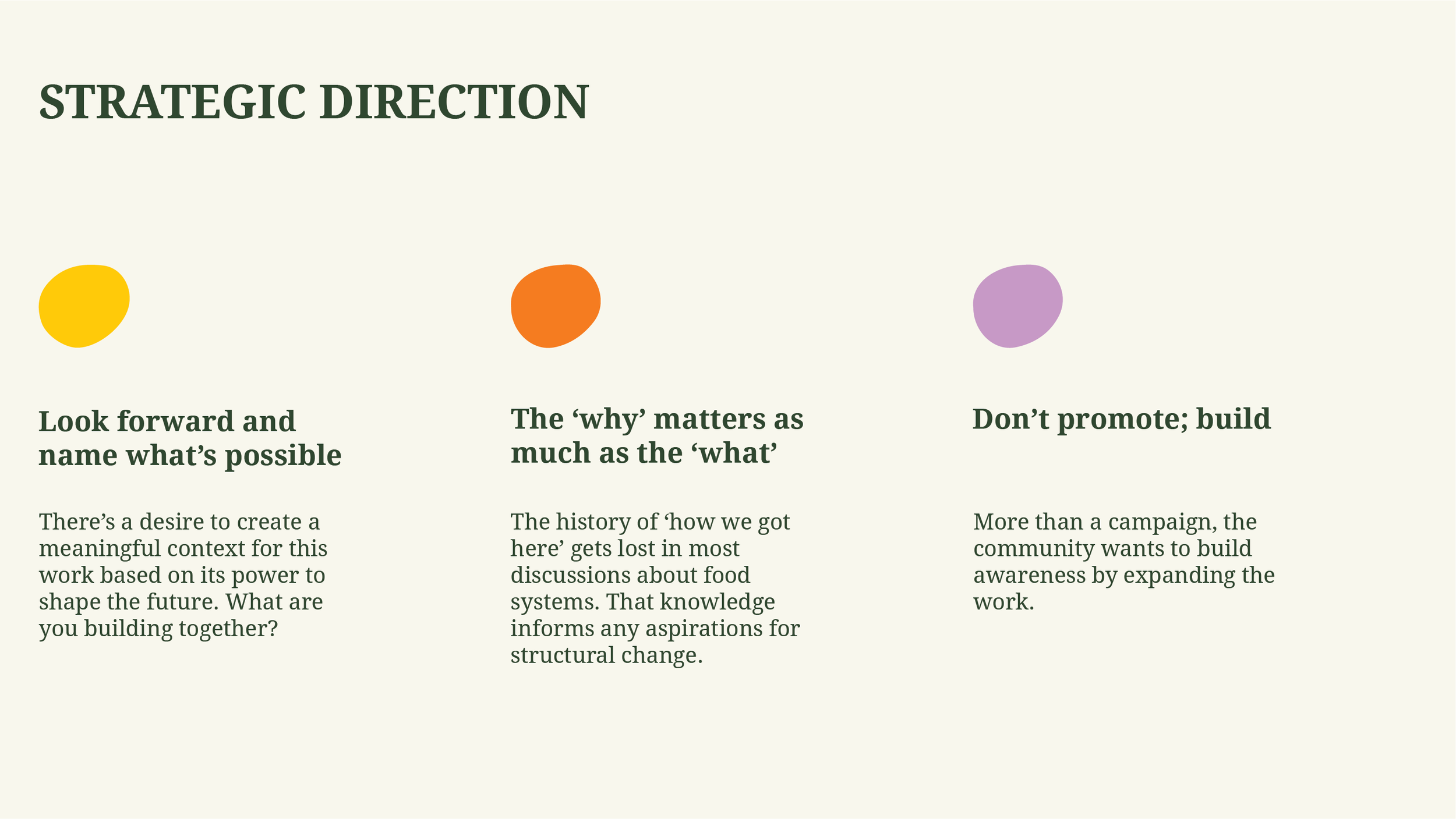Storytelling for Systems Change
Design Research, Facilitation and Participatory Research Methods | 2023
This project was a collaborative effort led by Cheryl Dahle's along with Community Food Navigator. Along with her, me, Anahita Dasgupta, and Andrew Russel. We conducted interviews, facilitated the session, and developed the final strategies under her guidance.
Community Food Navigator (The Navigator) is a local nonprofit organization that is a gathering hub and partner for food system organizations led by folks from the Black, Indigenous or People of Color communities. The Navigator extended an invitation to Cheryl Dahle and our team, keen on exploring the impact of storytelling from and about its stakeholders in fostering a deeper understanding and unlocking new possibilities for the network. This challenge is about more than marketing; it’s about finding ways that these organizations connect with each other, how they re-frame the public conversation about “food deserts” and create a narrative that can drive systems change.
We dedicated ourselves to understanding the issues surrounding local food systems. We did this by interviewing leaders within the community food web and designing and executing a co-design session with the Community Food Network and its stakeholders.
Framing
How might storytelling about local food sovereignty support their business and a community agenda for change?
Research
Initially, we conducted interviews with a wide range of stakeholders integral to the community, including farmers, chefs, and farmers' market managers, to gain insights into the local food systems. In addition to these interviews, we carried out secondary research to grasp the current state and explore potential storytelling approaches that could benefit the Navigator.
The Workshop
We then conducted a co-design workshop, which saw the participation of 16 Navigator members. They joined us for a two-hour session during which we shared our learnings from earlier interactions, gathered their feedback, and encouraged them to develop prototypes based on the insights we had gathered.
Participants were organized into 3-5 teams, each with the task of developing a representation of their idea, choosing either to perform a skit or to construct a diorama. The aim was to encourage teams to delve into the details of their concept, paying particular attention to the experience it would provide for their chosen target "user," whether that be themselves, the media, or policymakers.
Community Desires
From the what they built during the workshop, we identified and condensed them into three major desires.
Possible paths and Recommendations
Feedback
“This is excellent work. I hope the students are proud of what they accomplished. They have offered us a lot.” - Lisa Tallman, Executive Director, Community Food Navigator
Next Steps
The Navigator aimed to expand upon this work by collaboratively designing and further developing each of these recommendations with their community.


